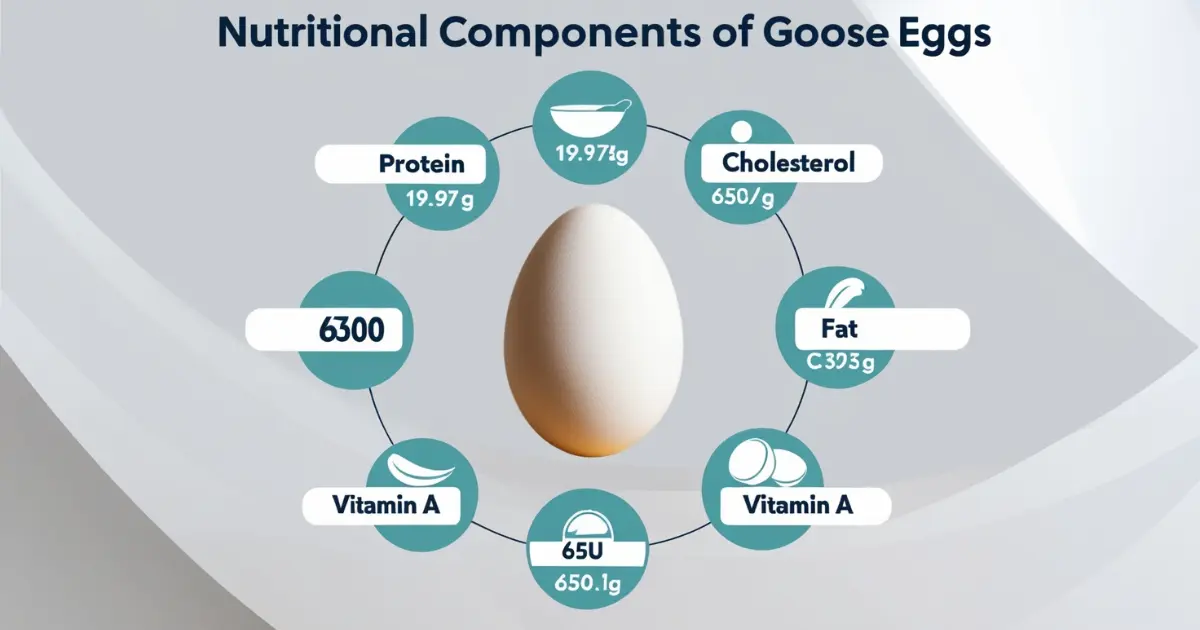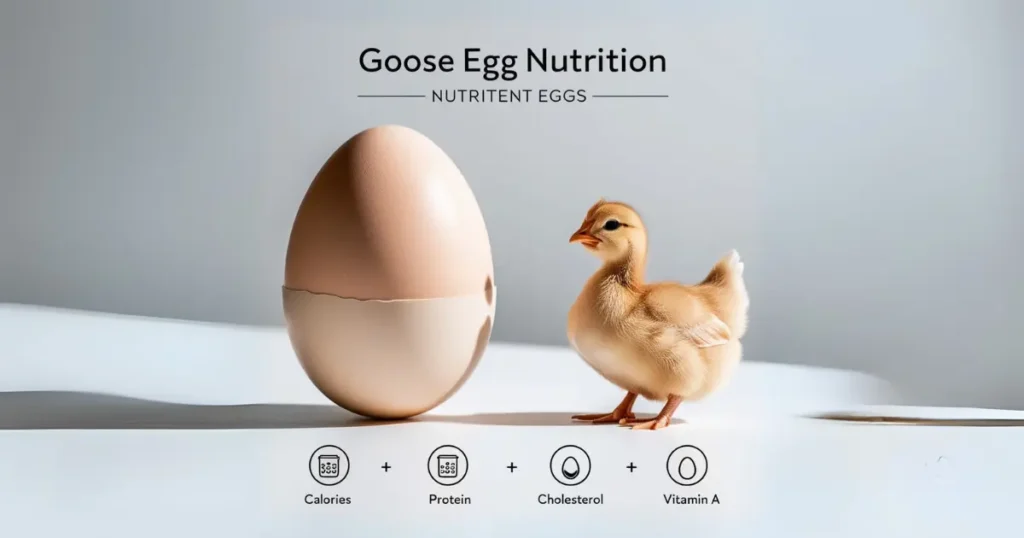Ever wondered what a goose egg could do for your diet? Sure, they might look a bit intimidating, but these oversized orbs are packed with nutrients! Goose eggs are like supercharged chicken eggs, offering a hearty dose of protein, vitamins, and minerals. So, let’s crack open the shell and dive into the world of goose egg nutrition!
Key Nutritional Components of Goose Eggs
- Protein Powerhouse: Goose eggs are protein-rich, containing essential amino acids necessary for muscle development and brain function. They surpass the protein content found in chicken and duck eggs, making them an excellent choice for individuals looking to boost protein intake.
- High Cholesterol and Caloric Content: Goose eggs contain around 266 calories per egg and are high in cholesterol, with about 1227 mg per egg, which is well over the daily recommended intake of 300 mg. Because of this, it’s recommended to enjoy goose eggs occasionally rather than as a daily staple.
- Rich in Fats: Goose eggs contain around 19.11 g of fat, with a mix of saturated, monounsaturated, and polyunsaturated fats. While fats are necessary for health, the high-fat content in goose eggs requires mindful consumption.
- Iron and Phosphorus: Goose eggs provide around 5.24 mg of iron and 300 mg of phosphorus per egg. Iron is essential for muscle function and energy levels, while phosphorus supports bone health.
- Vitamins and Minerals: Goose eggs are rich in vitamin A (important for eye health) and B vitamins (especially B12 and folic acid, which support brain health). They also contain selenium, crucial for immune and thyroid function.
- Omega-3 Fatty Acids: Due to their diet, geese produce eggs rich in omega-3 fatty acids, which support brain health and may reduce inflammation.
Goose Egg Nutrition vs. Chicken Eggs
| Nutrient | Goose Egg (per egg) | Chicken Egg (per egg) |
| Calories | 266 | 72 |
| Protein | 19.97 g | 6.3 g |
| Fat | 19.11 g | 5 g |
| Cholesterol | 1227 mg | 186 mg |
| Iron | 5.24 mg | 0.88 mg |
| Phosphorus | 300 mg | 95 mg |
| Vitamin A | 650 IU | 270 IU |
| Vitamin B12 | 4.1 µg | 0.45 µg |
| Omega-3 Fatty Acids | High | Moderate |
*Note: Values are approximate and may vary depending on specific egg and dietary factors.
To learn more about the farm fresh chicken eggs, you can check the article linked below:
Potential Health Benefits

- Heart Health: The omega-3s and vitamin B12 in goose eggs can support cardiovascular and brain health.
- Enhanced Immunity: Vitamins like A and selenium play a role in supporting immune function and may help prevent infections.
- Supports Eye Health: Vitamin A, found in goose eggs, is critical for maintaining healthy vision and eye function.
Considerations
Due to their high cholesterol and calorie content, individuals with cholesterol or heart concerns may want to limit their intake of goose eggs. As a unique alternative to chicken eggs, goose eggs offer a nutrient-dense choice but should be balanced with other dietary sources.
External Resources:
https://fdc.nal.usda.gov/fdc-app.html#/food-details/172190/nutrients



